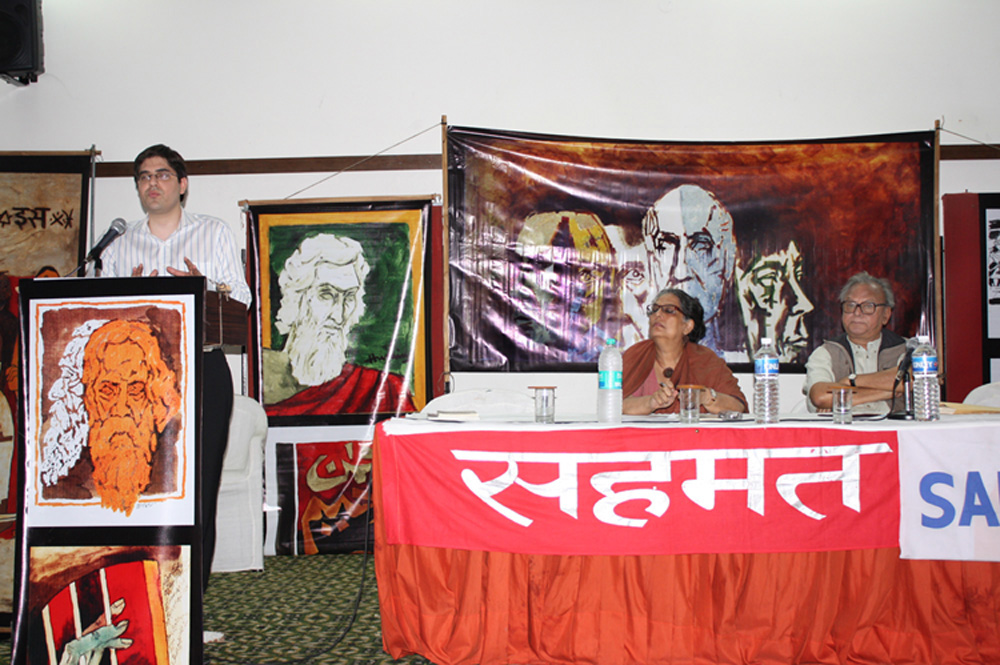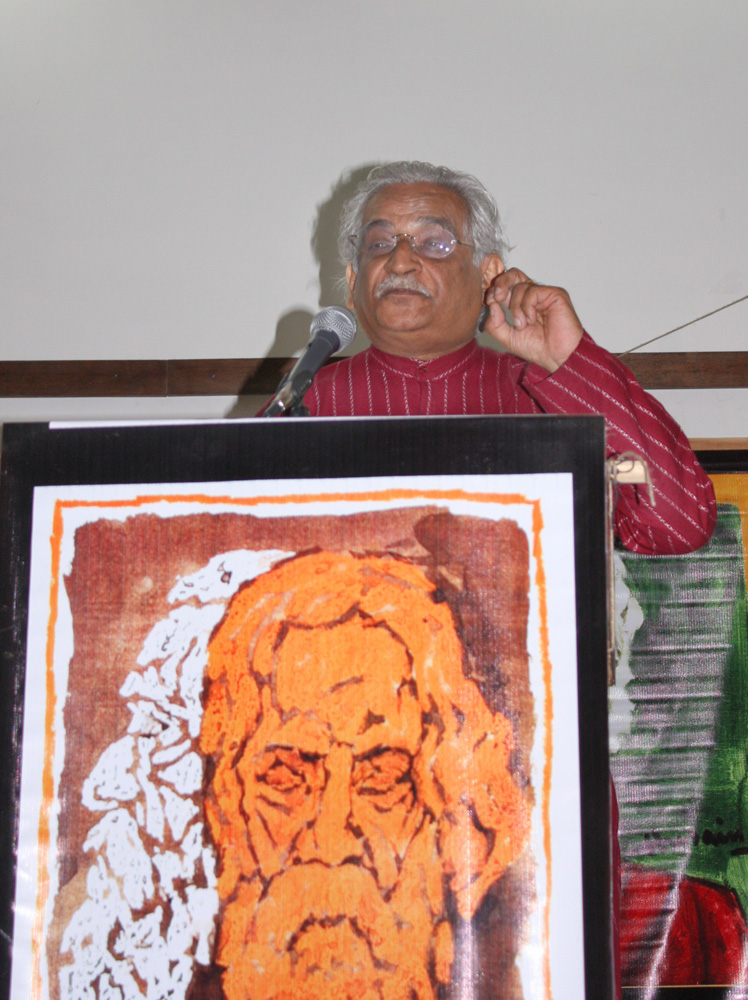
Geeta Kapur’s article on Husain Judgment
This High Court Judgment is enlightened not only because it redeems faith in the judiciary’s fair mindedness but in the fact of a lived modernity, in the modernity project of India as a nation and its immediate corollatry, secular worldview-- both seen to be essential to sane survival in this country.
Judge Kaul in a remarkably consistent and committed 75 pages of the judgement maintains an argument that all of us including artists and intellectuals can identify with. It is a call for the application of mind in the judicial sense of that term but also a call for an application of mind with regard to cultural creation, visual literacy and the play of imagination—to be able to recognize its stylistic modes and its inherently metaphorical nature; the ability to read conceptual allusions outside of familiar conventions as eg of Bharat Mata. Even these conventions themselves are as recent as the nationalist period of Indian history when the iconography served an immediate function of arousing /celebrating patriotism.
Husain is the only modern artist to be interested in nationalism in the patriotic sense of that term; to engage with the anachronistic lineage of a figure like Bharat Mata. And he does so because he has

Husain believes in taking Indian iconography on a long march—dislodging it from its traditional moorings and bringing it into contemporary times and he does so in the spirit of a fellow-traveller—a fellow traveller of the mythic figures, as he is of the common men and women, as they come to be together transformed from civilizational into national aspirations. Husain is the only artist to offer an imaginative rendering of potential identities—to gods, and humans in a democratic society; the only artist to have believed to this day that civilization and nation coalesce and produce new and ever newer players in the field of culture and these include artists and the creatures of their imagination that have to speak in a language of their own time and place. Husain has sought a contemporary figurative language to create this great carnival—and its is only the guilt and shame of intermediaries, cultural and political dalals manipulating the middleclass to states of envy, greed, insecurity and hatred that obstructs and distorts this generous faith.
If Husain has to be criticized it may that he has been naïve in investing this faith in the wholesomeness of the national project and while his optimism has been smashed by the non-believers—it is our task to redeem—if not that childlike leela of Husain’s creation then at least some sense of dignity in the name of Indian democracy and indeed the Indian State: Judge Kaul has taken a significant step in restoring that dignity on behalf of all of us.
